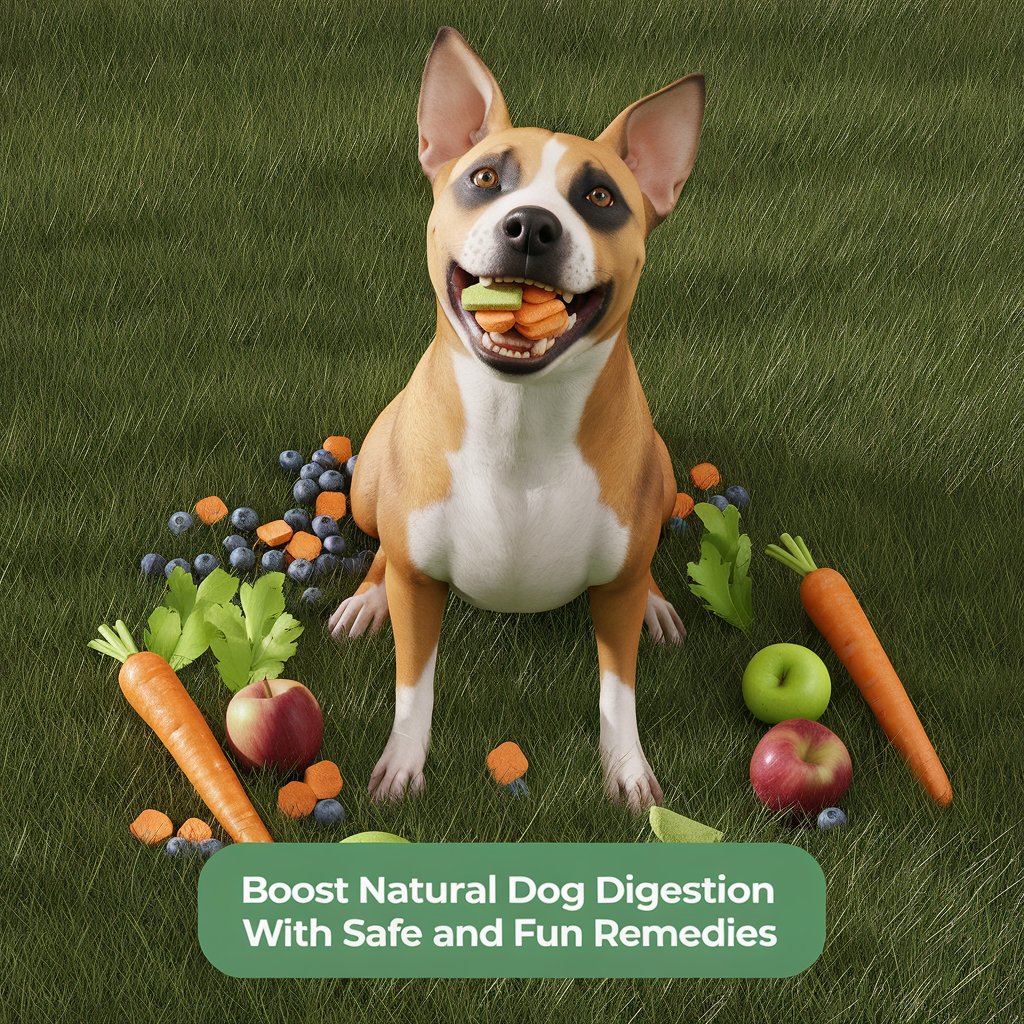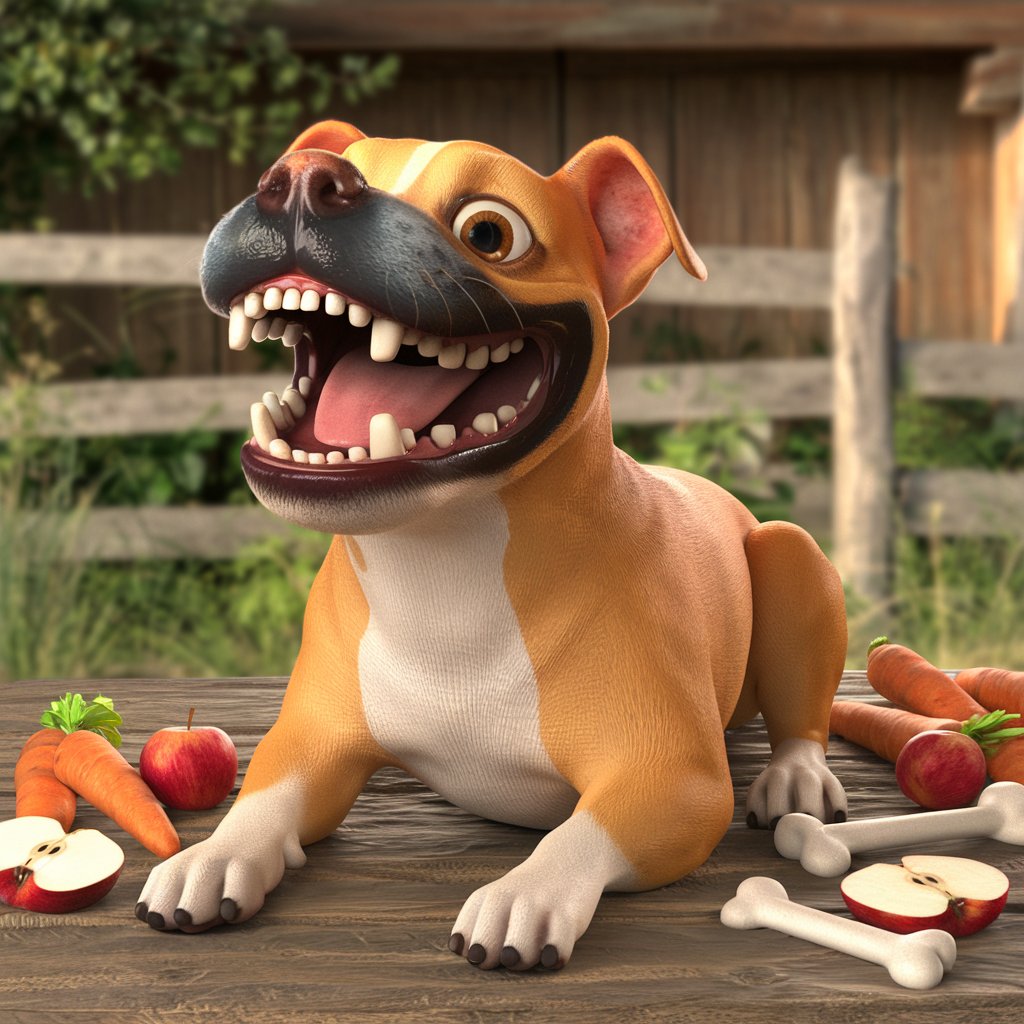When it comes to our furry companions, their health is always a top priority, and good digestion plays a huge role in their overall well-being. But let’s face it—sometimes, dogs have stomachs as sensitive as their ears when they hear the word “bath.” That’s where natural remedies come into play, offering safe, effective, and sometimes downright fun ways to help your dog digest food better. In this comprehensive guide, we’re diving deep into the world of natural dog digestion to help your pooch stay happy, healthy, and full of energy.
The Importance of Good Digestion in Dogs
Before we jump into the tips and tricks, let’s talk about why good digestion is so crucial for dogs. Just like in humans, digestion is the process by which dogs break down food into the nutrients their bodies need to function. Poor digestion can lead to a host of issues, including:
- Nutrient Deficiency: When your dog’s body can’t properly break down food, it can’t absorb essential nutrients.
- Stomach Discomfort: Gas, bloating, and diarrhea aren’t just unpleasant for your dog—they’re also signs of poor digestion.
- Lethargy: A dog that isn’t properly digesting food may lack the energy to play, run, and enjoy life to the fullest.
Good digestion equals a happy, healthy dog. So, how can you naturally improve your dog’s digestion?
Natural Remedies to Boost Dog Digestion
Let’s dive into some natural remedies that are not only effective but also safe for your canine companion. And don’t worry—these tips are as easy to implement as they are beneficial.
1. Pumpkin Power
Pumpkin isn’t just for Halloween—it’s a year-round superfood for dogs. Packed with fiber, pumpkin can help regulate your dog’s digestive system, making it a natural remedy for both diarrhea and constipation. Simply add a spoonful of pure, unsweetened pumpkin puree to your dog’s food, and watch their digestion improve.
2. Probiotics for Pooches
Probiotics are the good bacteria that help maintain a healthy gut flora. Introducing probiotics into your dog’s diet can improve digestion by balancing the gut’s bacteria levels, which helps break down food more efficiently. You can find dog-friendly probiotics in the form of chews, powders, or even in some types of yogurt. Just be sure to choose a product designed specifically for dogs.
3. Ginger for Tummy Troubles
Ginger isn’t just for calming human stomachs; it works wonders for dogs too. Ginger can help soothe an upset stomach, reduce nausea, and improve digestion. You can give your dog a small amount of fresh ginger or look for dog treats that contain ginger as an ingredient.

4. Apple Cider Vinegar
A splash of apple cider vinegar can do wonders for your dog’s digestion. This natural remedy helps balance stomach acid, which can aid in the digestion of food. Start with a small amount—about a teaspoon for a medium-sized dog—mixed into their food or water.
5. Bone Broth Bonanza
Bone broth is not just a tasty treat for dogs; it’s also a powerhouse of nutrients that support gut health. Rich in collagen and amino acids, bone broth can help repair the lining of the gut, improve digestion, and boost your dog’s overall health. You can make your own bone broth at home or buy it ready-made—just make sure it’s free from onions and garlic, which are toxic to dogs.
Dietary Tips for Better Dog Digestion
Beyond natural remedies, what you feed your dog plays a crucial role in their digestive health. Here are some dietary tips to help your dog digest food better.
1. Choose High-Quality Dog Food
Not all dog foods are created equal. High-quality dog food contains easily digestible proteins, healthy fats, and fiber that support digestion. Look for foods that list meat as the first ingredient and avoid those with fillers like corn, wheat, and soy.
2. Avoid Overfeeding
It’s easy to give in to those puppy-dog eyes, but overfeeding can lead to obesity and poor digestion. Stick to the recommended portion sizes for your dog’s size and age, and try to avoid giving too many treats throughout the day.
3. Small, Frequent Meals
If your dog has a sensitive stomach, consider feeding them smaller, more frequent meals. This can help prevent overeating and reduce the risk of digestive issues like bloating.
4. Add Digestive Enzymes
Digestive enzymes are natural substances that help break down food into nutrients. Adding a digestive enzyme supplement to your dog’s food can help them digest food more efficiently, especially if they are older or have digestive issues.

Fun Ways to Keep Your Dog’s Digestion on Track
Improving your dog’s digestion doesn’t have to be all about food and supplements—sometimes, it can be fun too!
1. Exercise and Playtime
Regular exercise is key to keeping your dog’s digestive system running smoothly. Physical activity stimulates the muscles in the digestive tract, helping food move along more efficiently. Plus, playtime is a great way to bond with your dog and keep them happy!
2. Mental Stimulation
Did you know that mental stimulation can also aid digestion? Puzzle toys, training sessions, and interactive games can help reduce stress and anxiety, which can have a positive impact on your dog’s digestion. A calm, happy dog is more likely to have a healthy digestive system.
When to Seek Help from a Vet
While natural remedies and dietary changes can do wonders for your dog’s digestion, it’s important to know when to seek professional help. If your dog is experiencing chronic digestive issues like persistent vomiting, diarrhea, or weight loss, it’s time to consult your vet. These could be signs of a more serious underlying condition that requires medical attention.
Conclusion
Caring for your dog’s digestion naturally is all about combining the right diet, natural remedies, and a bit of fun. Whether it’s adding pumpkin to their food, choosing a high-quality dog food, or ensuring they get plenty of exercise, these tips can help keep your dog’s digestive system in tip-top shape. Remember, a happy dog with a healthy tummy is a dog that’s ready to play, cuddle, and enjoy life to the fullest!












Discussion about this post